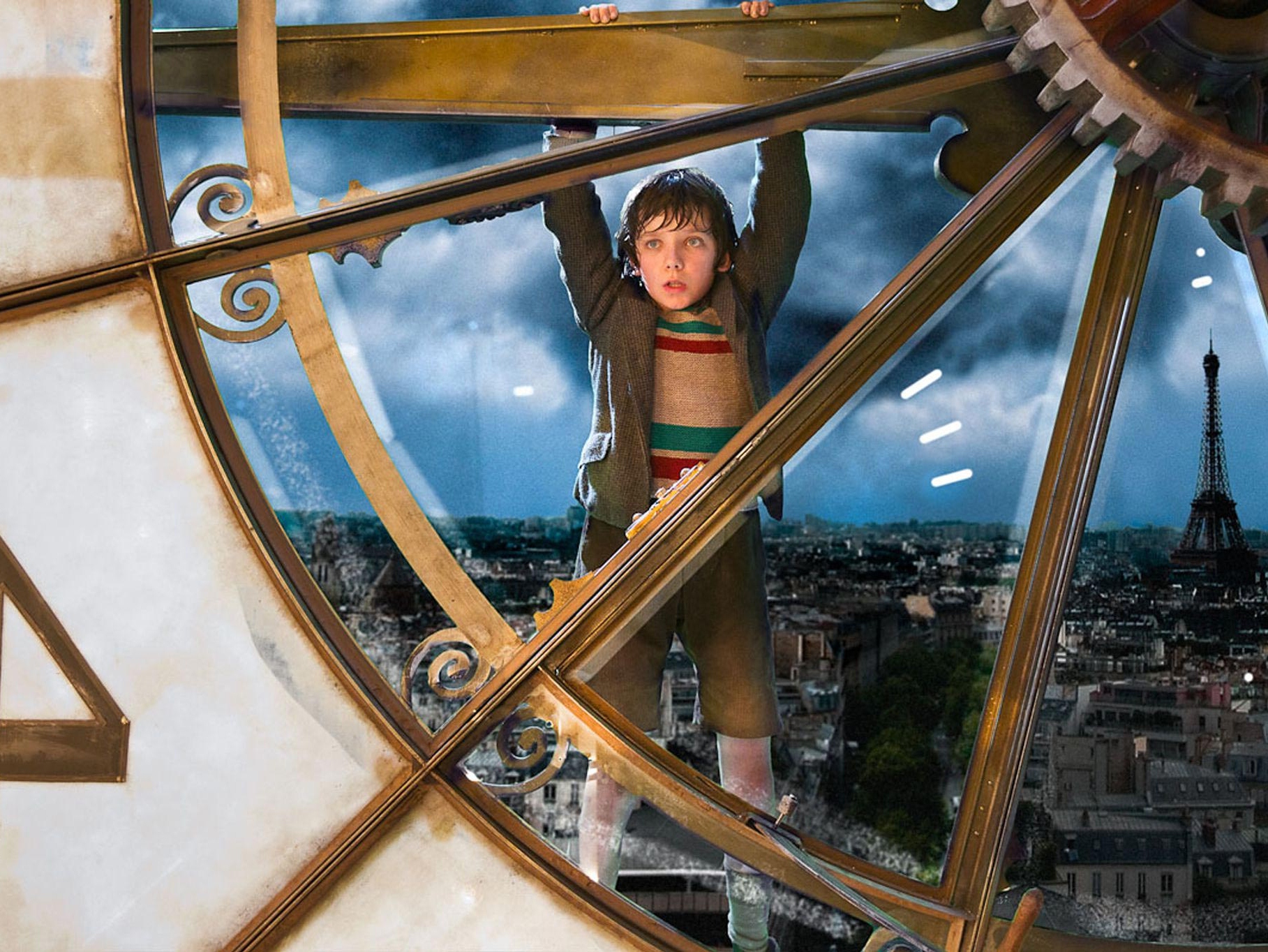
Without a doubt, director Martin Scorsese’s “Hugo” is gorgeous to look at. The CGI that lovingly recreates (in a hyper-reality) early 1930s Paris not only succeeds in crafting the story’s detailed and varied environment, but also in creating the appropriate atmosphere for what is essentially a fairy tale/love story aimed directly into the heart of the early decades of the magical art of motion pictures.
All the ingredients are introduced early; the orphan boy, Hugo Cabret (Asa Butterfield), the innocence of first love, the villain in the form of a station agent (Sacha Baron Cohen) and a bitter, angry old man with a secret (Ben Kingsley).
The only problem is that those ingredients are unable to create a whole that’s anything close to compelling. Frankly, the story is a bore. For lovers of early classic cinema, some fun can be had in playing “Where’s Waldo” with the countless nods to countless films (some subtle, some not) laced throughout. But if you’re signing on in the hopes of getting lost in story and character, you’re in for a long haul.
Twelve year-old Hugo lives in the walls of Gare Montparnasse, a cavernous railway station, where he steals food to survive. In order to remain undiscovered, Hugo keeps the clocks wound, repaired, and on time. This gives any potential prying eyes who would ship Hugo off to an orphanage the impression that his guardian — who up and disappeared one day — is still around.
Clock-making and repair is a skill taught to Hugo by his late father, who left him the only thing that now means anything to him, an amazing, wind-up C3PO-ish automaton. Before his untimely death, Hugo and his father began to repair the automaton together. This was a project that brought them closer both through the work and their shared anticipation over the secret that would be revealed once their project was wound up and unleashed.
Discovering this secret connects Hugo to his beloved father and is the only comfort the lonely child has in his hand-to-mouth life. In order to complete it, Hugo must steal the parts he needs from the many vendors who populate the station. A run-in with a toy store owner, Georges Méliès (Kingsley), threatens to not only shut this work down but also Hugo’s ability to remain undetected by an increasingly suspicious station agent. But Méliès isn’t so much tired of Hugo robbing him as much as he is bitter and angry at the world. Eventually, Hugo’s vulnerability and decency wears the toy vendor down and he allows the boy to work for him to pay for what he’s pilfered.
Over time, Hugo not only begins to understand that there’s more to Méliès than meets the eye, he also strikes up a friendship with his goddaughter, Isabelle (Chloë Grace Moretz). Together they discover the joys of blooming first love, motion pictures and the automaton’s secret — which isn’t the end of mystery, but the beginning.
Like the luminous “Age of Innocence,” “Hugo” is a film unlike any other Scorsese has done before, the kind of film he does every once in a while to prove he can’t possibly live long enough to give us a full measure of his unlimited talents. This is also a film every bit as personal as “Mean Streets.” The Academy Award-winner’s love for what he does and the medium as a whole is well known, and “Hugo” is an affectionate love letter to it – and one told with a bleeding heart.
Unfortunately, nothing — including whimsy, atmosphere, affection, heart and even romance, can overcome a weak story that fails to compel. Love letters mean something to the writer and to the intended. The rest of us need something more.
“Hugo” is available at Amazon.com.

COMMENTS
Please let us know if you're having issues with commenting.